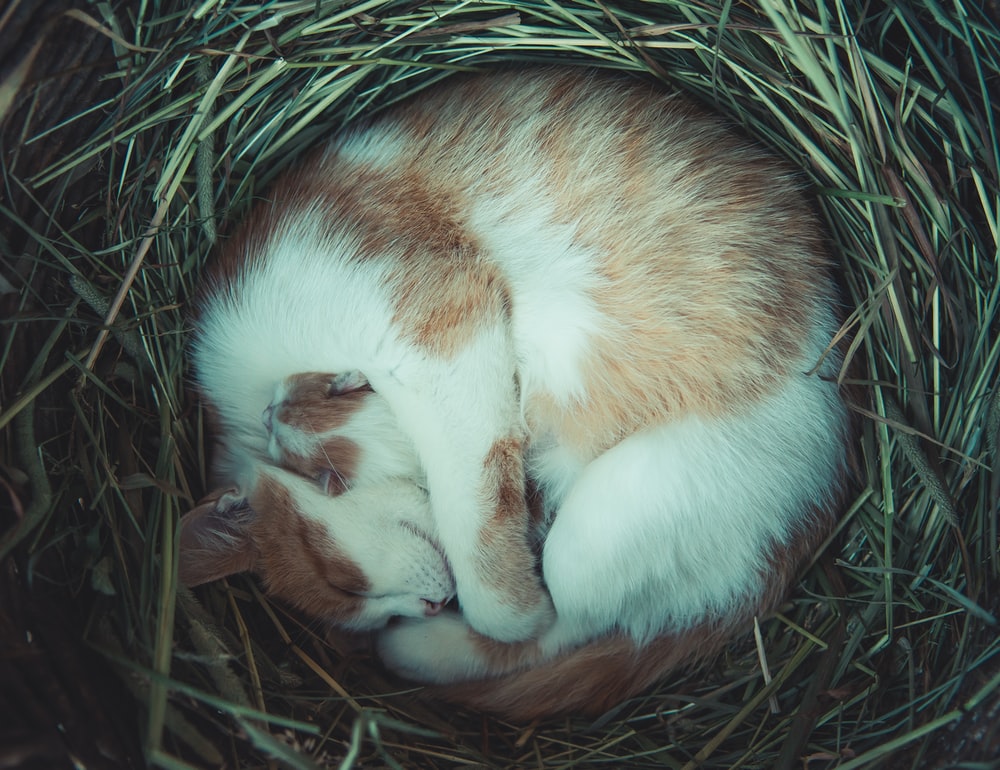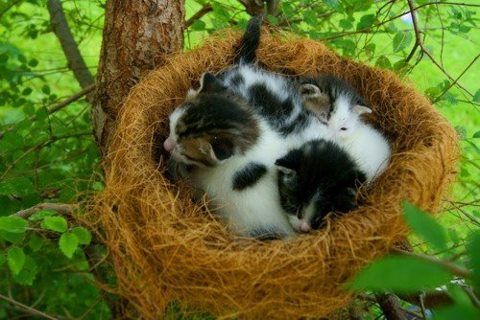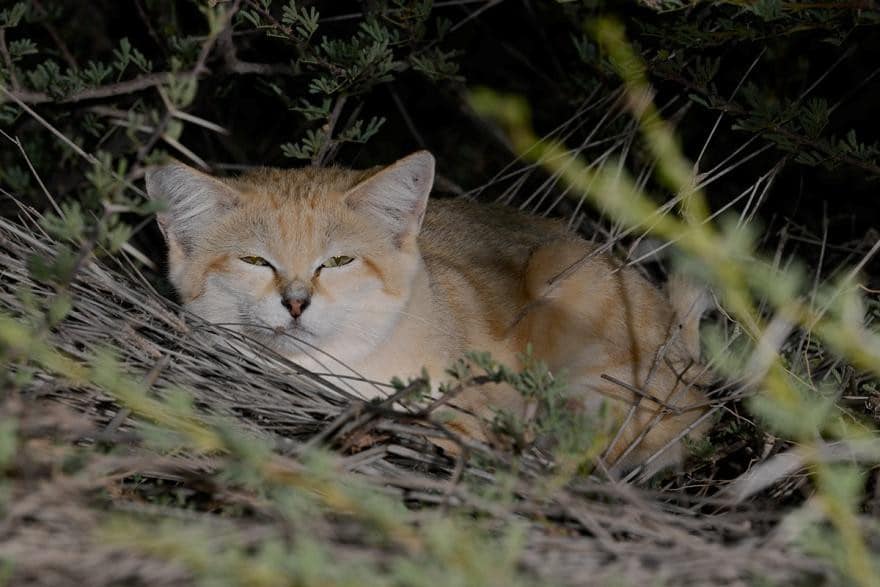Do you have a cat that is constantly making a mess? It might be because she is nesting.
Nesting is when a cat prepares her nest in anticipation of having kittens. She will pull out all of the soft materials from her bed and create a cozy space for her new family.
If your cat is nesting, there isn’t much you can do except let her finish and hope she doesn’t make too much of a mess!
But is preparation for giving birth the only reason why cats nest?
And what are some tale-tell signs that a cat is nesting?
In this post, we will delve into the topic of nesting behavior in cats in a bid to answer these and many other questions. Let’s get started!
What Is Nesting In Cats?

Nesting is the feline equivalent of nesting instinct in birds – or humans.
It’s a behavior that kicks in when a cat is getting ready to have kittens.
Nesting is a cat’s instinctive preparation for the birth of her kittens. She will begin by finding a safe, quiet place to have them, away from the hustle and bustle of the household.
She may use a box, laundry basket, or even your bed.
Once she has selected a spot, she will start to gather soft materials to line it with, such as towels or blankets. Some cats may even start hoarding food and other supplies.
The nesting process can take several days, and your cat may become restless or cranky during this time.
If you notice your cat exhibiting nesting behavior, give her some space and let her do her thing!
Once she has kittens, she’ll likely want to move them to a more secluded spot, so be prepared for that too.
Nesting behavior helps keep the kittens safe and warm and provides them with a comfortable place to nurse.
Once the kittens are old enough to leave the nest, they will typically do so on their own.
However, the mother cat may continue to use the nest herself from time to time.
If you have a pregnant cat in your home, you can help her prepare for nesting by providing her with a box or other enclosed space that she can use as her nest.
Line the space with soft materials, and place it in a quiet, safe area.
Once the kittens are born, you can move them to the nest if you wish, or let the mother cat do so herself.
How Long Before Birth Does A Cat Start Nesting?
Nesting behavior can start as early as two weeks before labor begins, though it’s more common to see it in the last week or so.
If your cat nests earlier than this, don’t worry — it’s not a sign that something is wrong. She may just be trying to get comfortable.
How Long After Nesting Do Cats Give Birth?
Cats typically give birth about 63 days after nesting. However, this can vary depending on the cat.
Some cats may give birth as early as 58 days after nesting, while others may not give birth until 68 days after nesting.
If your cat is close to 63 days and has not yet given birth, it is important to monitor her closely and contact your veterinarian if you have any concerns.
Where Do Pregnant Cats Like To Nest?
Pregnant cats often seek out a cozy, sheltered spot to build their nest.
A cat’s nesting instinct is strong, and she will usually prepare her nest well in advance of giving birth.
Some pregnant cats will start collecting soft items like towels or blankets to line their nest. Others may scratch at carpeting or furniture to create a comfortable nest area.
Once a cat has found the perfect spot for her nest, she will spend considerable time there during the final weeks of pregnancy.
She may also begin to exhibit nesting behavior earlier on in her pregnancy as she starts to get bigger and more uncomfortable.
This can include restless pacing, frequently changing positions, and meowing plaintively.
Why Is My Cat Nesting When She’s Not Pregnant?
Nesting is normal behavior for cats, both pregnant and non-pregnant.
It’s often seen as a way for your cat to get comfortable and make herself feel at home. She may also be doing it to mark her territory.
If your cat is pregnant, she may be nesting in preparation for her kittens.
If she’s not pregnant, she may just be feeling extra cozy!
Either way, it’s nothing to worry about. Just make sure she has a comfortable spot to nest in and enjoy watching her snuggle up.
How Can You Tell If A Cat Is Nesting?

The most obvious sign of nesting is if your cat starts retreating to quiet spots and seeking soft materials like towels and blankets to line the spot she identifies.
The cat may also start to eat more than usual, and may become more affectionate towards her owner.
If you think your cat is nesting, it is best to leave her be and let her get on with it. If you try to move her, she may become stressed and could harm her kittens.
Here are some other signs that might confirm that your cat is nesting:
- Loss of appetite
- Restlessness
- Pacing or restless sleeping
- Hiding away from other cats and people
- Bringing soft materials (like towels or blankets) into her bed or sleeping area
- Excessive grooming
Why Is My Male Cat Nesting?
Even though the main reason for nesting in cats is preparation for the birth of kittens, male cats can occasionally nest as well.
They do this in response to changes in the environment, such as the addition of a new pet or baby to the household.
Male cats may also nest if they feel stressed or anxious. The cat may also spend more time sleeping in the nest than usual.
Parting Thoughts
If your cat’s nesting behavior is causing problems, such as destroying property or accidents outside the litter box, you can try to redirect their focus with positive reinforcement.
For example, provide your cat with a cozy bed or perch near their nest that they can use instead.
You can also try Feliway, a calming pheromone product that may help reduce your cat’s stress levels.
If your cat’s nesting behavior persists, or if you’re concerned about their welfare, please consult your veterinarian.

Hi! I am Eleanor Price. I started this website after my cat, Louie, almost died from a case of botulism (a type of food poisoning often caused by bacteria that grow on food items). Turned out that my cat’s diet was the problem. I have made it my duty to provide the best information and recommendations about everything cat lovers need to know about their felines’ health and wellbeing. My goal is to find the most informative content on anything feline-related and share it with fellow hardworking kitty lovers.

